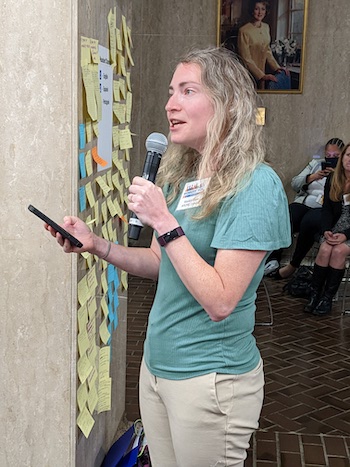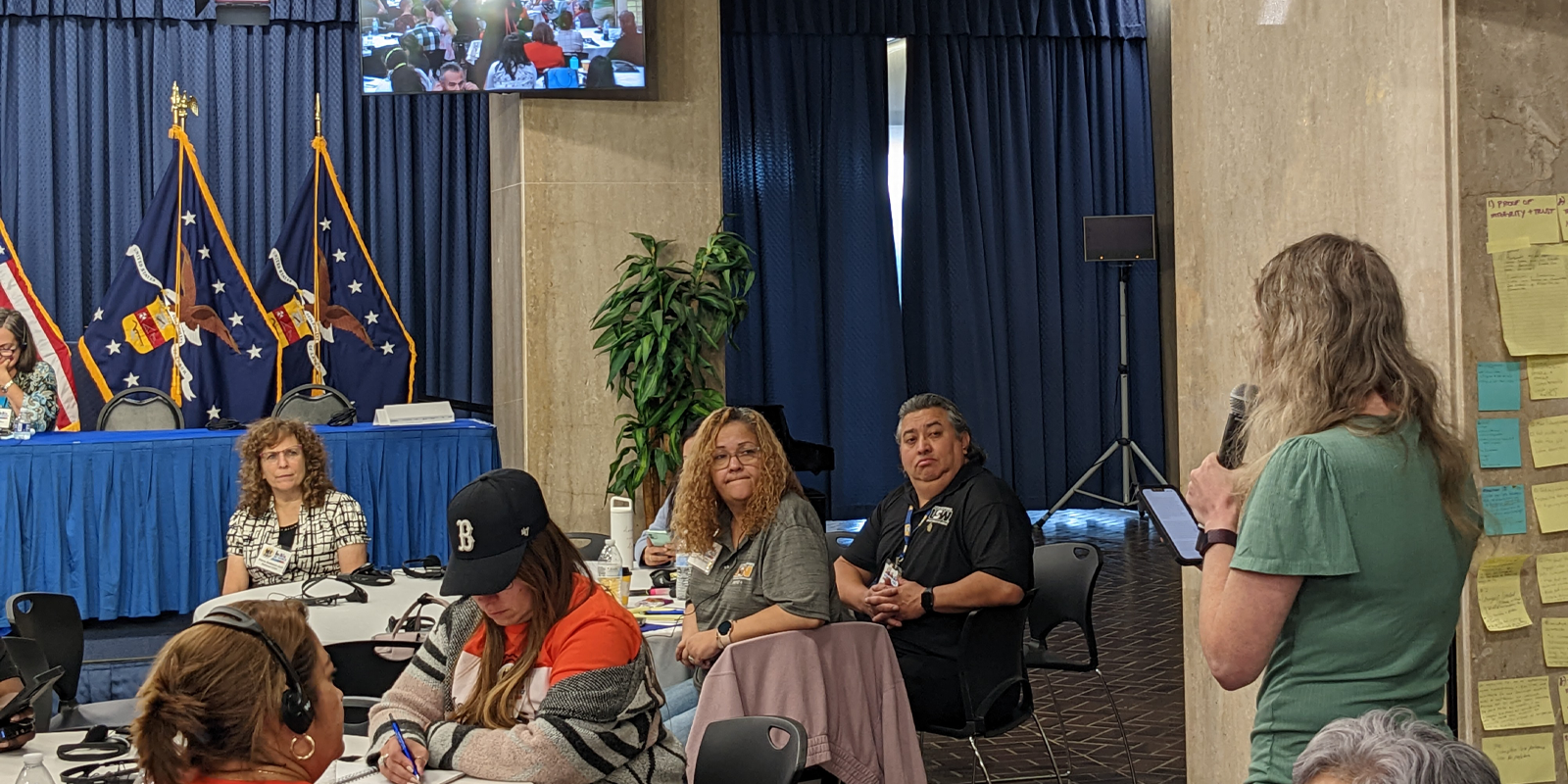
A member of AFSCME Maryland appeared before the federal agency responsible for safe and healthy workplaces last week to shine a light on workplace violence, a problem some members of our union know all too well.
AFSCME Local 557 (Council 3) steward Miriam Doyle spoke at the Occupational Safety and Health Administration’s first-ever Workers’ Voice Summit, in which workers told OSHA officials about the problems on the job and suggested ways to correct them. OSHA is a part of the U.S. Department of Labor.
Doyle is a social worker at the Clifton T. Perkins Hospital Center, Maryland’s maximum security hospital for the criminally insane.
She began by telling OSHA officials, “One of the most looming issues for me is the prevalence of workplace violence, which has been so aggravated by understaffing and institutional failure to implement safety protocols.”
To underscore her point, Doyle discussed what happened to her former co-worker and friend Chris Yelen, also a social worker, who was attacked on May 5 by a patient in the psychiatric unit.
“You could say it’s a normal hazard of working in a maximum security environment, serving some of the most severely sick people in Maryland,” she said. “But what we cannot normalize is the string of failures that led up to this.”
No doctor was assigned permanently to the psychiatric unit for seven months prior to the attack, Doyle said. Yelen screamed repeatedly for help but no hospital security personnel showed up; he was instead rescued by another patient, she said. And Yelen’s assailant had attacked someone else just a day earlier, Doyle said.
“Chris had fractures in his face. His left eye was swollen so badly that he couldn’t see out of it for days. He’s still taking shots for the disrupted nerves and discs in his back. When I saw his leg a few days later, it was basically a landscape of traumatized tissue,” Doyle said. “It’s not normal that that dangerous patient was exhibiting aggressive behaviors in the previous 24 hours, but inadequate measures were taken to prevent him from further aggression, resulting in my colleague being attacked.”
Yelen requested an internal investigation and also filed for an external inquiry by OSHA. But an internal investigation hasn’t materialized and OSHA declined to reprimand the facility stating that policies are already in place to prevent workplace violence.
